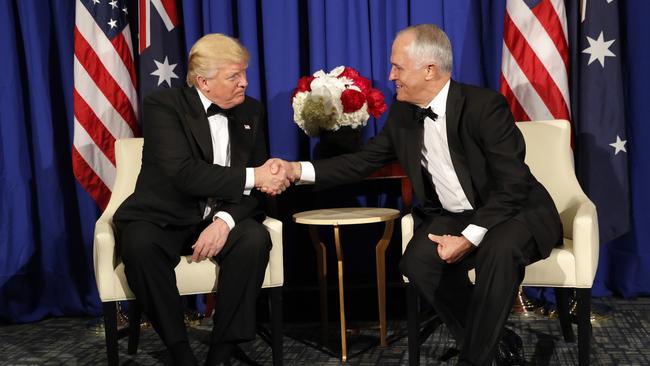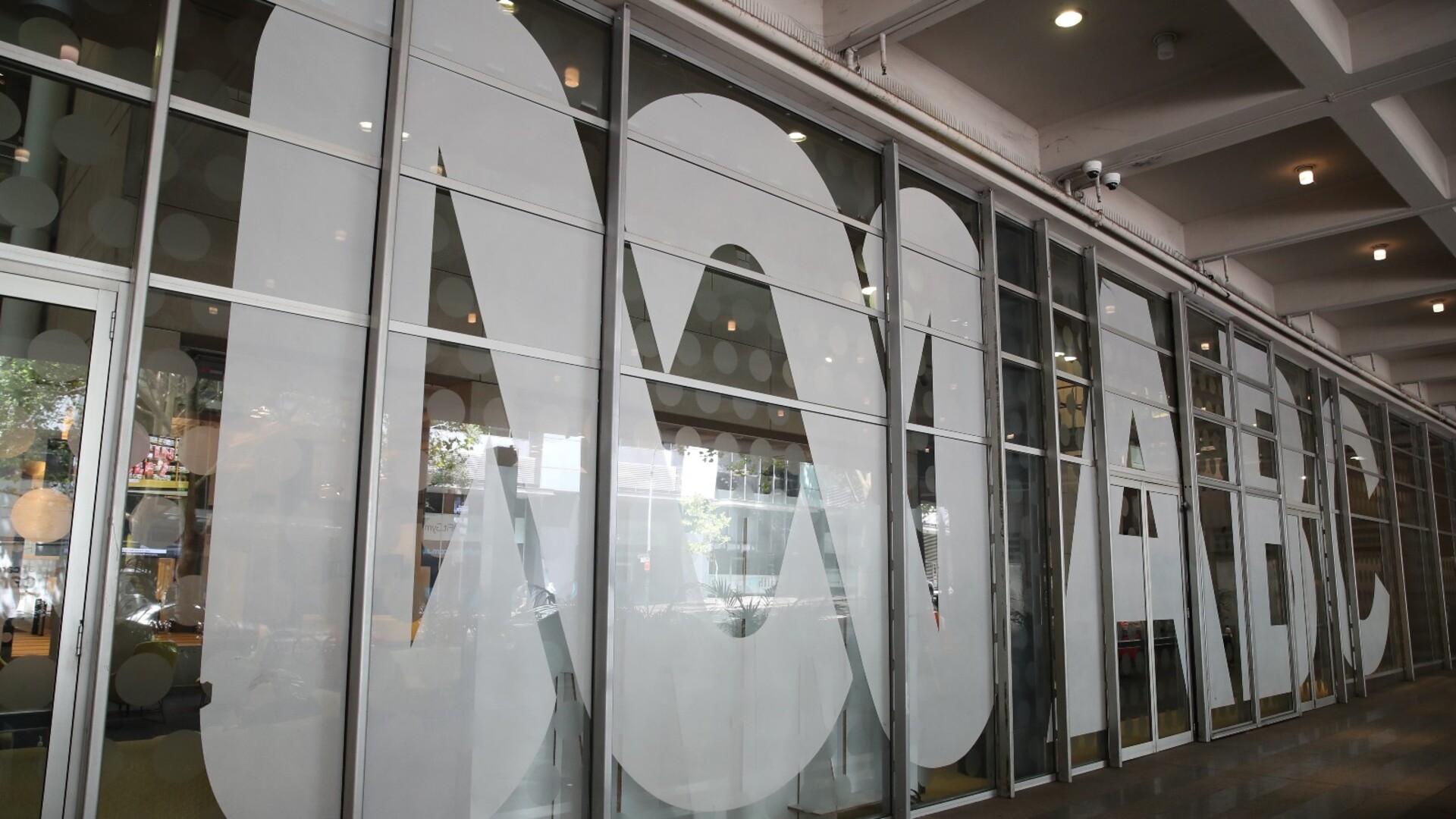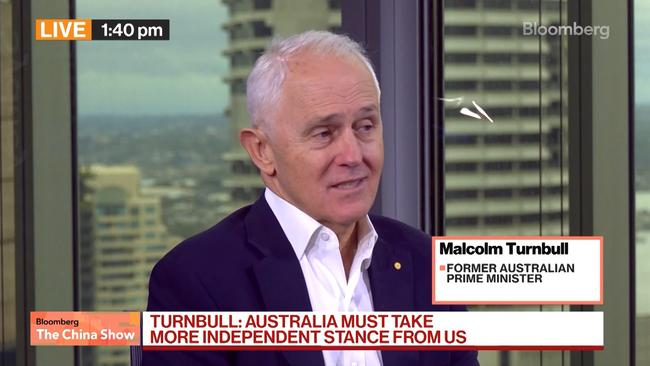There’s a certain irony in Malcolm Turnbull criticising Donald Trump
Former Liberal Party prime minister Malcolm Turnbull may not acknowledge it but he shares certain personality characteristics with US Republican Party President Donald J. Trump.

What’s more, neither seems to have heeded the lessons in the Old Testament’s Ecclesiastes 3. As many will recall, this commences “To every thing there is a season and a time to every purpose under heaven”. Scroll down to verse seven and the message is: “A time to rend and a time to sow; a time to keep silent and a time to speak.”
It would seem that Turnbull was not focused on timing when, from his Sydney office, he gave an interview with the American media company Bloomberg on March 10. Turnbull compared Trump unfavourably with China’s President Xi Jinping, the head of the Chinese Communist Party, declaring: “President Xi will aim to be the exact opposite of Trump, where Trump is chaotic, he will be consistent. Where Trump is rude and abusive, he’ll be respectful. Where Trump is erratic, he will be consistent.”

Like Turnbull, Trump is a very proud man who does not take well to criticism. It was not long before Trump returned serve – as the saying goes. In a post on Truth Social just before midnight on Sunday in Washington DC, Trump described Turnbull as “a weak and ineffective leader” and added that Australians agreed.
Never one to avoid having the last word, Turnbull went on ABC TV’s 7.30 on March 10 where he was interviewed by Sarah Ferguson. He made another ABC appearance the following morning, this time talking to Radio National Breakfast presenter Sally Sara.
Turnbull became angry when Ferguson put it to him that, in view of the state of negotiations between Australia and the US over tariffs, it might have been best if diplomats were “given the maximum opportunity to operate behind closed doors”. He was even angrier the following morning when, politely, Sara asked whether it “was a wise week to be making these comments”.
Turnbull told Ferguson that he never thought he “would have to defend free speech here on the 7.30 report”. The next day, he accused Sara of implying that “we should engage in self-censorship in Australia for fear of offending the huge ego of Donald Trump”. And he wondered out loud as to whether the ABC “has become so pusillanimous” as to seriously suggest that “we shouldn’t feel free to speak the truth in Australia for fear of Donald Trump” and asked “Is that the depths you’ve sunk to?”.
There is something ironic in all this. There was Turnbull complaining that Trump has a “huge ego” and declaring on national television and radio that the taxpayer-funded public broadcaster was trying to censor him. All Ferguson and Sara were suggesting – and many Australians were thinking – is that, on this occasion, there was a time to keep silent.
But it was not to be. Apparently, Turnbull has rejected the view he expressed in October 2018 shortly after he lost the support of a majority of his colleagues in the Liberal Party room, and with it, its prime ministership. At that time, he told a young leaders forum in New York: “There is no way I’d be hanging around like an embittered Kevin Rudd or Tony Abbott; seriously these people are like, sort of, miserable, miserable ghosts.”
Turnbull is always welcome at the ABC. The public broadcaster is a conservative-free zone without a conservative presenter, producer or editor for any of its television, radio or online outlets. However, the ABC will tolerate Liberal prime ministers, provided they have Turnbull-like views.
Turnbull temporarily lost control when he told Sara: “I believe in the ABC, I believe in freedom of speech, I believe in Australia and I believe in standing up for Australia. And I think, I’m sorry, apparently, you don’t.” Needless to say, Turnbull was not sorry. But he was confused.

The problem with freedom of speech at the ABC is that the public broadcaster does not practise what it preaches. There is scant freedom of speech at the ABC because it lacks viewpoint diversity among its journalists and within many of its programs.
I have read nearly all of the major speeches delivered by ABC chair Kim Williams since he took up the position about a year ago. And I have watched/listened to or read about his many interviews. Williams has made some important points criticising bias, activist journalism and unprofessionalism. But he has not addressed the organisation’s lack of viewpoint diversity.
Compare and contrast Samir Shah, who became BBC chairman around the time Williams took up his ABC role. Shah, who has a background in the media, gave his first interview in his BBC role to The Sunday Times on March 9.
Unlike Williams, Shah does not avoid the BBC’s lack of political diversity. He acknowledged to reporter Michael Leckie that “the media recruits graduates from the arts, humanities, and they tend to be metropolitan and to have a point of view you could describe as liberal centre, centre-left”. He added that “we”, namely the BBC, “kind of reflect that”.
Shah said that the BBC metropolitan centre-left leanings means that the news coverage of important stories lack balance. He mentioned its reportage of immigration and hostility to Israel. And he wants errors acknowledged and corrected.
Shah believes that the BBC has done well on ethnic diversity but needs “more diversity of thought including covering views of the British northern working class”.
The new BBC chairman is also concerned that its “stars” – as with ABC presenters – moonlight to private sector companies for appearance fees.
His view is “it’s a privilege to work for the BBC, you should just stick to it”.
For Turnbull this week it would have made sense to be silent. For Williams this year, it’s time to speak up about the ABC’s essential weakness.
Gerard Henderson is founder and executive director of The Sydney Institute.







Former Liberal Party prime minister Malcolm Turnbull may not acknowledge it but he shares certain personality characteristics with US Republican Party President Donald J. Trump. Both entered public life relatively late in life after a successful but controversial background in business. And both are possessed of an over-the-top self-belief.